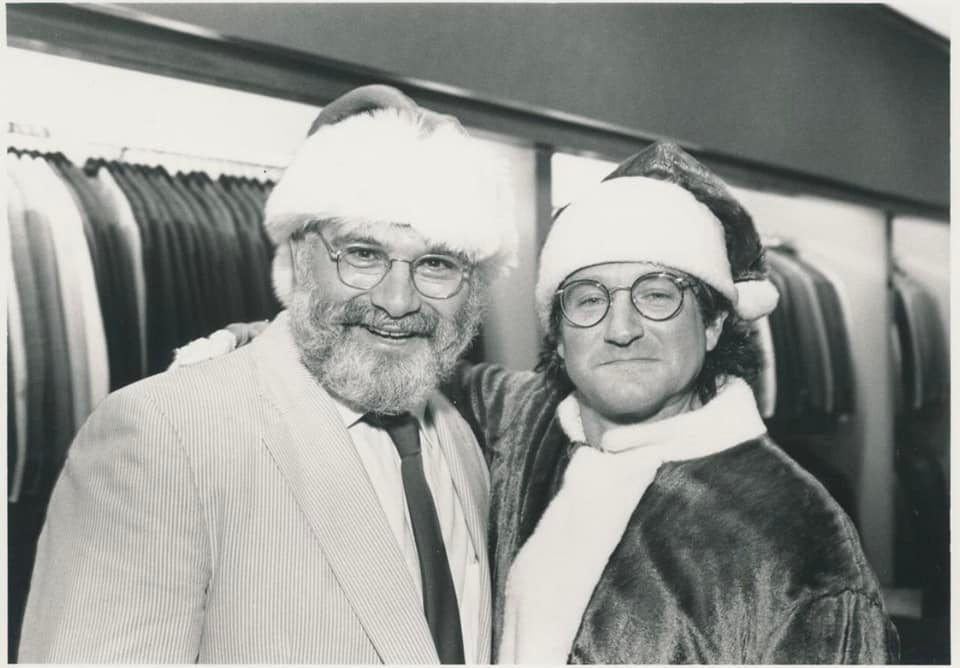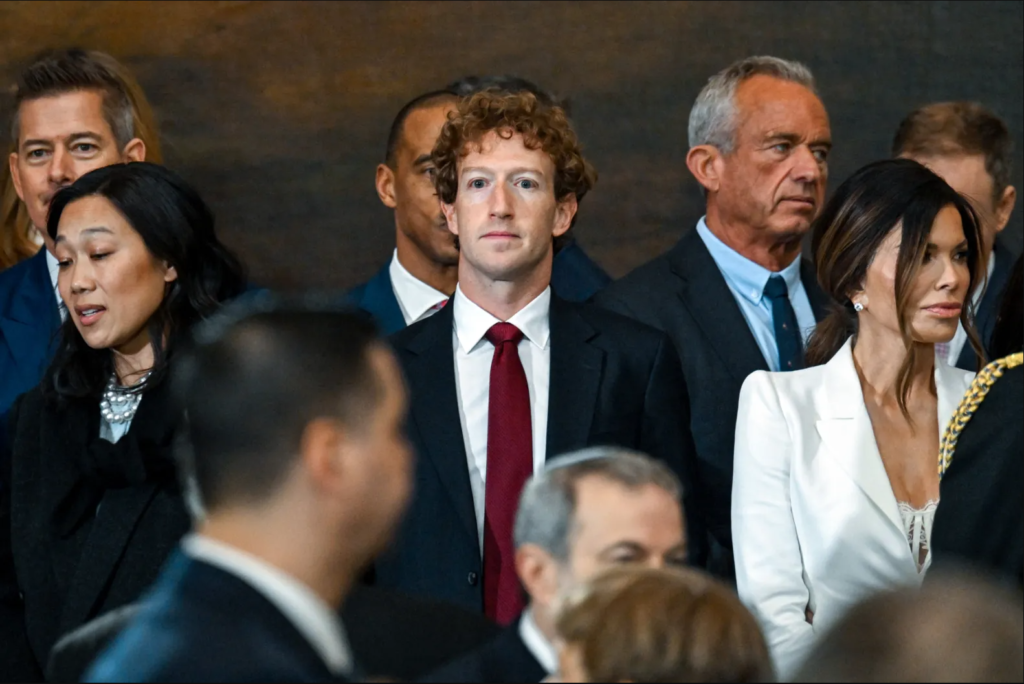How Do We Act When We're Lonely?
Is loneliness mental or cultural? Who do we become when it gets a hold of us?
Table of Contents
Why loneliness? Did I choose this topic or did it choose me? Either way, here I am writing about something achingly sad and profoundly universal.
But first, some questions. What is loneliness? Where does it come from? How do we behave when we’re lonely? Why am I suddenly binge-watching Philip Seymour Hoffman films?
One day into my research and I’m waist-deep in stories of inexplicable anguish. Parental neglect. Childhood trauma. Bullying. Abandonment. Betrayal. Alienation. Hurt. Isolation. Failure. Rejection. Divorce. Ageing. Being invisible. Or worse, forgotten.
Just what the world needs. More reasons to be alone. Yet being alone is not the same thing as being lonely—and you need not read a ton of books to know this.
Truth is, we’re all experts on loneliness.
I don’t care how old or young you are, how many people you know or don’t know, how much money you have or don’t have, you either are or were—but most definitely will be—lonely. It’s part of the human condition. And it has a way of finding you when you least expect it.
When you’re living in a dorm trying to “figure yourself out”. In a new city with an eccentric roommate. At the local pub after a long day’s work. In a dusty motel room on the road. On a quiet afternoon looking at old photographs. But perhaps most unexpectedly, on an unremarkable evening, just when you think you have everything under control—a career, spouse, grandkids, a house—it’ll find you again in the nakedness of your own reflection.
And that’s okay.
We all know an asshole who inadvertently teaches us a thing or two about ourselves. We hate him for it but we put up with him anyway.
My friend, that asshole has a name and here’s what we know about him.
What is loneliness?
It’s hard to capture the devastation of loneliness in a clinical definition. But let’s see what psychologists have to say.
Take 1: “Loneliness is the silent gap you experience between you and others.” Hmm. I’d say loneliness feels more palpable than a “silent gap”. It’s heavier. Clingier. It’s a goddamn leech.
Take 2: “Loneliness is a distressing emotional state that people experience when they notice a discrepancy in the desired and perceived quality or quantity of their social relations.” Uh… what in the hell did I just read?
Take 3: ‘“a sad or aching sense of isolation; that is, of being alone, cutoff, or distanced from others.” Okay, now we’re gettin’ somewhere…
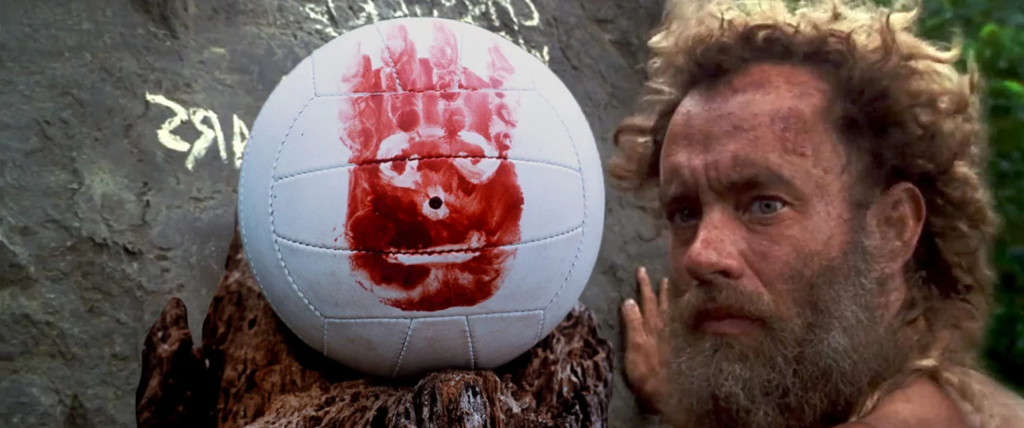
Oh yeah! That’ll do it. And that’s my point: loneliness is bewilderingly subjective.
We often think of deserted landscapes, abandoned buildings, impenetrable darkness, gray skies. Forlorn eyes staring at a world that refuses to meet their gaze.
But loneliness is a two-faced creep. A relentless motherfucker.
It has the audacity to show up in places it has no business being in. In crowded hallways, noisy playgrounds, sardine-packed subway trains, loud parties, between the sheets, across the dinner table. We can’t even take a shit without it breathing down our necks. It galivants around town and follows us in planes and trains and cabs around the world. That’s how it makes itself known: not necessarily in the absence of people, but in the daunting, at times infuriating, realization that no matter where we go, there’s no place for us.
It’s the profound disconnection from the faces we meet, the places we know—from our sense of belonging in this world. It makes us uncomfortable to be alive. It feels like “the whole world want me to pray for ‘em, but who the fuck prayin’ for me?”
It ruins a ham sandwich at the local diner the same way it ruins a 10-course meal at a Michelin star restaurant.
We know it affects our health and wellbeing. And I’m not just referring to those studies that say loneliness can lead to heart disease, diabetes, dementia, and premature death. You don’t really care for health when you’re lonely. How can you when you feel like you’re trapped inside a stranger’s body? That’s why it’s worth looking at the ways in which it completely alters our perception of reality and the way we view ourselves in the world.
Why am I lonely?
“I am always saying “Glad to’ve met you” to somebody I’m not at all glad I met. If you want to stay alive, you have to say that stuff, though.”
― J.D. Salinger, The Catcher in the Rye
It’s acceptable to be lonely sometimes. But to be lonely most of the time, well, that’s considered a “you” problem.
You wouldn’t be lonely if you had more friends. You need to get out more. Have more adventures. More experiences. More time. Get a hobby. Live a little, won’tcha?
This Netflix documentary about blue zones will tell you that one of the secrets to living a long, healthy life is being part of a community. Well, no shit.
Of course, relationships matter. Hobbies are great. But we’re given the erroneous impression that finding a group of people that you can live, love, and laugh with in this polarized world, is easy. And if you can’t, well, that’s on you.
But what if meeting more people only made you lonelier?
Wouldn’t it be grand if you could magically find a group of accepting individuals to grow old with? People who reciprocate your kindness without demanding a cult-like conformity to their values and beliefs? You know, like the one in Lars and The Real Girl, when the town folk band together in this wholesome way to genuinely support the socially awkward and lonely Lars.
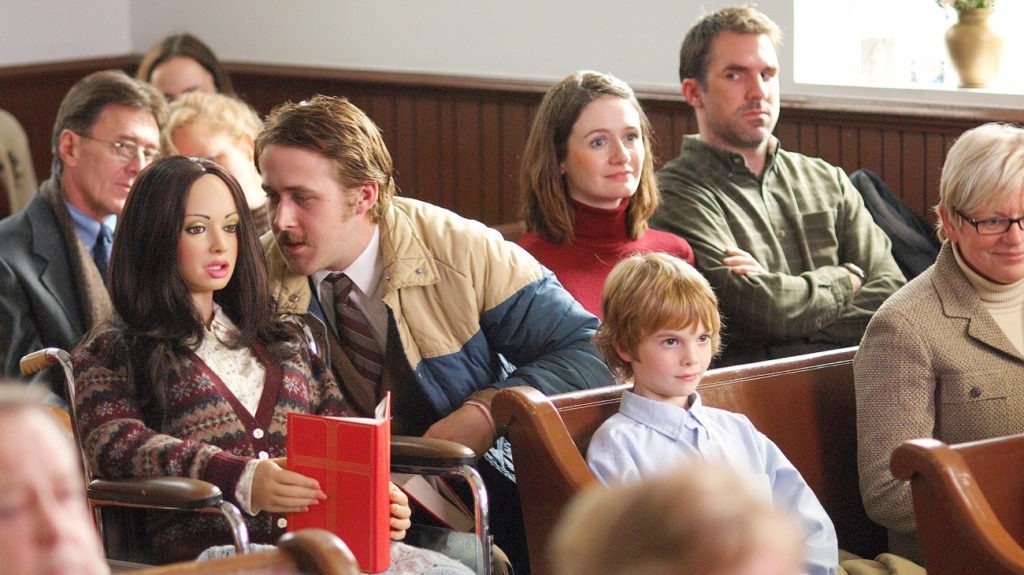
Now that’s a community worth striving for.
Many of us don’t have access to that kind of support. Yet we care deeply about what people think of us and our membership in certain clubs. We start young, seeking validation from parents, teachers, friends, family. That hunger for acceptance follows us into adulthood. We end up caring too much about what others think and not nearly enough on the quality of our connections or how we truly feel about ourselves—which, as we inevitably discover with age, is so much more important that it’s preposterous to think we ever believed otherwise.
And then there are times we feel inexplicably lonely even when we have people in our lives who care about us. What the fuck is that about?
It’s hard to diagnose your own loneliness when there’s no obvious reason for it. But there’s always a reason—and usually not that obvious.
It could be anything. Limited social contact, lack of financial security, chronic stress, loss of a loved one, life transitions, illness, ageing, genetics, hormones, feeling overwhelmed. This stuff happens to everyone—but our responses vary significantly.
We hear a lot about the power of building connections. But so much of our loneliness stems from the environment we live in. The work we do. The media we consume and metabolize. The lifestyle we co-create. The city makes you feel like there’s never enough time. And time is money. And there’s never enough money.
We stand by and watch ourselves get sicker, colder, meaner, emptier. Our self-inflicted wounds become decorated battle scars. But who’s battle are we fighting for 40 years?
We can’t have culture without consensus. So in a bizarre turn of events, we end up feeding ourselves to a toxic society that “actually undermines human health by the very assumptions that it makes about what’s necessary for human life.”
You can take up a cooking class, build better habits, travel, exercise, and do everything your self-help book tells you to do. But if you’re living in an environment that privileges class and status over relationships and wellbeing, you’ll continue to feel lonely no matter how many people you surround yourself with.
Part of the problem is that society tends to equate success with net worth and present role models in the shape of lonely billionaires. We worship at the altar of banks and oil companies. We go round and round in this industrial toilet. But there is no friendship to be made here; only shit.
If you feel painfully lonely and can’t seem to figure out why, think about where you live, what you do for a living, who your friends are. Check in with yourself mentally. When was the last time you were at peace? What’s changed since? Probe for answers to questions you may never have dared to ask yourself.
It takes enormous courage and vulnerability, and you might be surprised by what comes out of the process. Sometimes it’s not possible to do this alone, so don’t be afraid to seek professional help. Safer than a false prophet, cheaper than a cult.
“Good science by definition allows for more than one opinion, doesn’t it? Otherwise you merely have the will of one man. Which is the basis of a cult. Is it not?” (The Master, 2012)
Loneliness in childhood
“Mothers are all slightly insane.”
― J.D. Salinger, The Catcher in the Rye
You might associate loneliness with old age, heartbreak or grief, but nowhere is the needle of loneliness as sharp and penetrable as it is in childhood.
Of course, we don’t have the ability to fully understand it then—and there’s a certain shame in admitting it to ourselves when we’re all grown up. The stigma, the judgment, the look of disgust, of deep concern.
Yet so much of our loneliness goes back to our formative years.
Take Truffaut’s masterpiece The 400 Blows.
Loosely based on the filmmaker’s own life, we find an emotionally neglected kid doing his best to navigate life. Like many of us at that age, he’s often up to no good—not too different from the adults around him. Unfortunately for him, he gets caught every single time only to be humiliated and punished disproportionately for his actions.
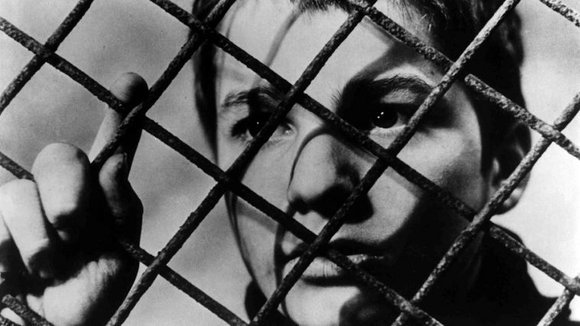
Blow after blow, he carries on, until one day he’s sent off to a juvenile detention center for petty theft. Except there’s a tragic detail. He’s caught returning a typewriter after attempting in vain to pawn it off. Perhaps more heartbreakingly, he’s then robbed of a chance to reunite with his best friend—the only person who ever really cared about him.
He’s had it. He makes the great escape. He takes off in the middle of a game. He runs and he runs until he reaches a place he’d always wanted to see. We wonder where he’ll go next, if they’ll find him, what they’ll do to him, and the film famously closes with an unpredictable freeze-frame.
He turns around and breaks the fourth wall. And it’s a thing of beauty. Here’s a kid who looks back at us, confronts the world in a way many of us can’t. It’s the end of boyhood.
As a child, loneliness scars us in ways we don’t quite understand until we start looking more closely at ourselves in the mirror. We bring our emotional scars into new relationships. We withdraw easily, expect rejection, preempt abandonment—and we become particularly good at noticing the bad stuff.
If you ever experienced tremendous loneliness as a kid, your brain might latch on to the feeling for all eternity. It’ll whisper: “You’ve got to look out for yourself, bud, ‘cause no one else did and no one else will.” Of course this may no longer be true in your adult life. But your brain remembers the trauma and keeps the proverbial gun loaded. Just in case.
It’s a survival mechanism—a powerful one.
Consequently, some of us develop a deep sensitivity to our environment and the people around us. In a conversation with Tim Ferris, physician, trauma expert, and author Gabor Maté shares his own experience of a childhood wound festering much later in life:
“So, this is when I was 72. Six years ago. I'd been on a speaking trip to Philadelphia and […] it was well-received. On the way back, Air Canada bumps me up to first class, so I couldn't be more comfortable. I land at the airport, my wife is meant to pick me up and I get a text as I land saying “I haven't left home yet, do you still want me to come?” and from feeling very comfortable and very pleased with myself, if I can put it that way, I go into a rage. I text back “Never mind” and I take the taxi home. So, imagine the indignity of having to take a taxi home, you know? I arrive home. Now here's the deal. My wife's an artist. When she's in the studio painting, everything else disappears. I've only known this for over 50 years, you see. She has no bladder, she has no husband, she has no hunger. It's just her and the art. And that's what happened, you know. So, what am I so upset about?
When I come home, I don't even talk to her, I just grunt at her. And, uh, I keep this up for a day and she finally says “knock it off already!” and, as I say, it's a tribute to decades of progress that I could knock it off after 24 hours because in the past, I might have carried on for days like that. Now what's that all about?
Well, my mother gave me to a stranger, as I mentioned earlier, and I didn't see her for five or six weeks when I was a year old. She did this to save my life. When I saw her again, I didn't even look at her for several days—and that's what small children do on separation because the brain says that it was so hurt when you abandoned me that I'll never open myself up again to that kind of vulnerability. I won't even look at you now—that imprint from a one-year-old is what showed up when my wife said “I'm not picking you up” or at least I'd be late picking you up. All of a sudden, the woman on whom I'm relying for presence and support and love is unavailable. And what gets triggered is just a childhood imprint of abandonment and rage and despair. And so, this is how trauma shows up in our lives. It doesn't have to be as dramatic as that, but it shows up in our relationships, and how we feel about ourselves, and how we interpret events, and how we react to things that happen in our worldview. So, trauma is this sort of invisible dynamic that shapes so much of how we live our lives but we tend not to be aware of it.”
Now of course, we’re a social species and we know loneliness is an evolutionary response that signals our need for connection and survival. But throw in trauma into the mix and you’re looking at behavioral patterns that are hard to change—even when you become aware of them.
In this study, lonely people were found twice as likely to observe negative social signals as people in satisfied relationships.
This is survival mode on steroids, or as researchers put it: “an implicit hypervigilance to social threats” which “leads to increased attention and surveillance of the social world and an unwitting focus on self-preservation”.
When loneliness transforms into solitude, it’s a beautiful thing. It’s like a cold prison cell morphing into a warm summer garden.
But when a lonely individual remains chronically lonely, the cell shrinks and it shrinks—until it can’t contain you as a whole any more. It’s not a quick death; it’s a slow dismemberment. You continue to feel everything, so you do whatever you can to numb the pain. Everything short of breaking through.
Loneliness in adulthood
“The mark of the immature man is that he wants to die nobly for a cause, while the mark of the mature man is that he wants to live humbly for one.”
― J.D. Salinger, The Catcher in the Rye
Part of the issue of identifying loneliness in adulthood is that we’re bombarded with stereotypical images of what it looks like. A person who failed to integrate and assimilate into society. Someone dangerous. Suspicious. Unstable.
A stigma. Misfit. Outcast. Deviant.
We’re reminded of the Joker and “God’s lonely man”, Travis Bickle.

Sure, we understand their pain, their insecurities, their suffering—because we all know how it feels to be invisible. But we wince and shift as we watch them become who they are. We’re rooting for them until we aren’t. We sympathize for what was and distance ourselves from what is.
Empathy isn’t the end of reason. It’s a gateway to compassion. It has a way of making us reflect on where “I” end and “You” begin. How far will you go with this character? How long before you start to pull away? When do you jump ship and swim back to the isle of sanity?
Author of Mini Philosophy, Jonny Thomson writes:
“The empath is caught between a rock and a hard place. If they have no compassion whatsoever, then they risk turning to manipulation or Machiavellianism. If they have too much compassion, then they end up fatigued and uncaring, which leads back to having no compassion. The truly, morally, empathetic person is someone who manages to walk the compassionate tightrope between the two.”
And what a tightrope it is.
These are questions professional actors grapple with all the time as they attempt to bring complex, morally ambiguous characters to life. And for many of them, like Benecio Del Toro, it all comes down to one thing: “I need to understand the character. I don’t need to agree with him.”
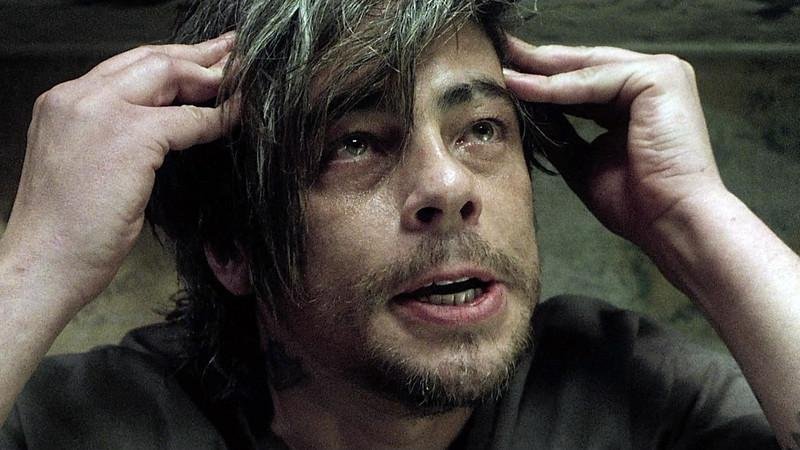
It’s not that we struggle to recognize loneliness as we grow older. We often struggle to let it go.
Maybe it’s something we did or something that was done to us. Something secret. Something burdensome. Shameful. Sometimes loneliness becomes a self-inflicted punishment for the hopeless, the unloved, the unforgiven.
Other times, it’s not by choice. We feel crippled by our lack of social connection—of what people might make of our loneliness. The very notion of being perceived as a socially disgruntled grown-up is enough to distract ourselves with pills and pornography, antidepressants and bad television, delusions of who we are and what we do for a living. Because forced isolation can be maddening.
As an adult, it’s easier to empathize with a lonely kid. But for some reason, we recoil at the thought of a lonely grown-up. A needy coworker, reclusive neighbor, emotionally demanding family. Maybe because on some level we’re all lonely, just trying to get by on our own.
Sometimes the mark of perceived social failure is so unholy, so leprous, that we’d rather admit we have a bit of an alcohol problem. A social media obsession. No time to live outside a self-cannibalizing job.
It’s a bleak moment in human history when the confession of our vices becomes less onerous than the admission of our loneliness. Perhaps this is why addiction is called “the disease of loneliness”.
Here’s how the late comedian Robin Williams described his own struggle with addiction in 2006:
“It’s a voice; it’s a little quiet voice that goes “jump”. It’s the same voice that goes “just one.” It's the same voice. And the idea of “just one” for someone who has no tolerance for it—that’s not a possibility. […] It’s just there. It’s latent; it waits. It lays and waits for the time when you think it's fine—“now I'm okay”—and then BEEP. Next thing you know, it's not okay. This is not going so well.”
When asked if there was something anyone said that helped him get through it, he replied:
“You need help. And that's the best sentence. […] It was a couple of years of just thinking I can do it on my own. And you can't. That's the bottom line. I can do this. I can stop. And you really think you can. Then you realize I need help and that's the operative word.”
Williams died tragically in 2014.
He’d been open about his struggles, including his substance abuse addiction. At the end of his life, he suffered from a range of ailments, including anxiety, depression, hallucinations, and paranoia. He was reportedly sober and had been misdiagnosed with Parkinson’s Disease, but his autopsy revealed a little-known neurodegenerative disease called Lewy Body Dementia that can lead to visual hallucinations, cognitive problems, and depression.
Incidentally, Williams was fascinated with the human mind—a love that was deepened by his portrayal of celebrated neurologist and writer Oliver Sacks in the 1999 film Awakenings.
“To me, if I could be anything, I’d be a neurologist. The brain fascinates me,” Williams once said on Charlie Rose.
And why wouldn’t it? So much of our lived experience is shaped by what goes on in our minds. Feelings of loneliness, depression, self-loathing, as well as creativity, compassion, humor, forgiveness. But sometimes we have no idea how to reconcile these conflicting emotions. We can’t always control it and we just don’t know how to go on.
Yet go on we must—so we cope the only way we know how. We watch the yellow fog from The Love Song permeate our world, “rubbing its back upon the window-panes”. The same yellow fog that permeates the opening shot in Taxi Driver.
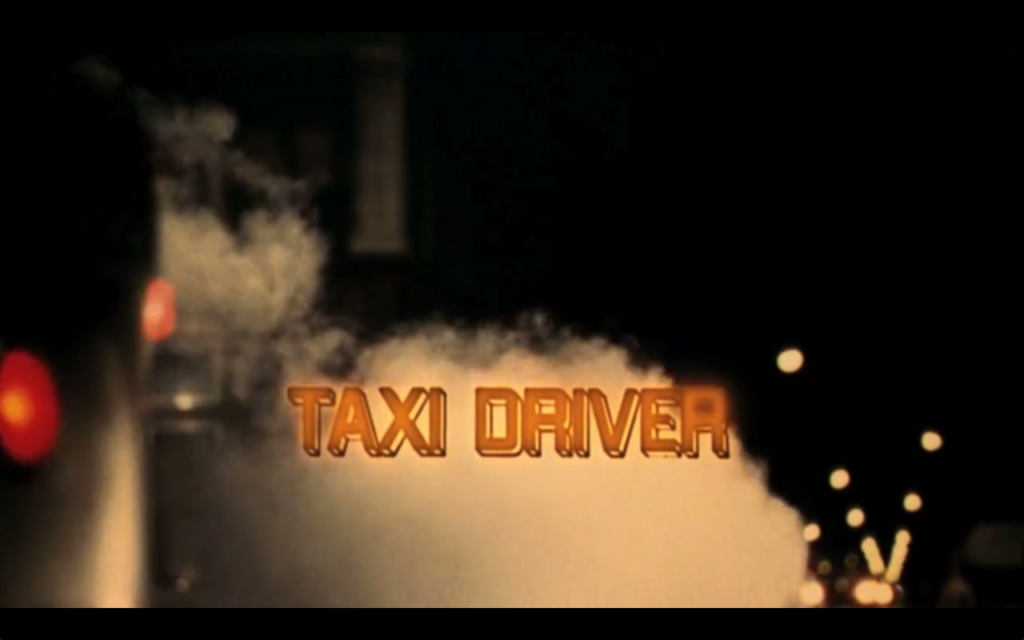
Loneliness consumes us, makes us do things with a skewed worldview that has us convinced ours is the right way, the only way. But there are infinite ways. Infinite expressions. That’s what makes loneliness so hard to pin down.
We all respond differently to whatever goes on inside our skull-shaped reality-making machine.
Loneliness in everyday life
At some point past our 20s, we all ask ourselves the same cliched question: “What am I doing with my life?” And if we remain lonely in our quest for answers, we end up making friends with whatever’s accessible to us. Here are some you might be familiar with.
Neuroticism
In his autobiography, Marlon Brando defined acting as “the expression of a neurotic impulse”. He saw it as a survival instinct—something we all do in everyday life just to get by.
Today we have studies, particularly this one co-authored by the late pioneer and founder of social neuroscience John T. Cacioppo, showing a genetic association between loneliness and neuroticism.
We genuinely want to understand our loneliness—where it comes from, how to quell the pain. The problem is, we want to get it right all at once. We develop this fixation with mirroring, in being twice removed from reality, so we can get closer to the truth—to seeing our “self” as an “other”.
Some of us like to live in the past, constantly reminiscing on what was because it’s the only time we ever feel in control. We know how it all ended once and we use it to predict the future. But of course, life is never predictable and through this naïve conclusion, we inadvertently become the architects of our own prison.
We see the disorientation of this human endeavor in Charlie Kaufman’s haunting film Synecdoche, New York. The story follows Caden Cotard, a neurotic theater director played by the late Philip Seymour Hoffman, whose life sweats out in a Kafkaesque fever. You expect the comfort of linearity. Instead, you’re reminded “the end is built into the beginning” and, of course, life is never as linear and coherent as we’re told growing up.
As we watch the lonely protagonist sink deeper into this symbolically pregnant universe, between the worlds of here and there, we experience moments of profound clarity that almost don’t belong to a world so esoteric and multifaceted. Here’s one of them from a staged funeral scene:
Withdrawal
Other times, loneliness can make us terrified of the things we already know. Our past. Our present. Our failure. Our inadequacies. Our grief. Particularly if you’ve lost a loved one.
We’d rather retreat from the world than bear the thought of moving on without them. So we stand at a distance and switch to autopilot mode. We choose severance over reconciliation. We throw ourselves into work and call it productivity—and because pain and pleasure are so deeply intertwined, some of us deny one in order to avoid the other, while others escape through it.
Hunger is a primal instinct, but now we know the same holds true of our need for connection. This fascinating study shows how acute isolation makes us crave social interaction the same way fasting makes us crave food. Loneliness expert and research scientist at the University of Chicago, Louise Hawkley explains where this “social hunger” comes from:
“Definitionally we can say [loneliness] is a mismatch between what we expect or want from the relationships we have and what we're actually getting from those relationships. Sometimes that's purely quantity, like, I need to have more people and I can't find more people, or more typically it's—I have people but they're not satisfying me. It's like eating a meal of celery or something. You know it's just not cutting the mustard. So the quality of the relationship matters a lot. […] We think of loneliness as equivalent to a hunger signal. It's signaling that we need to reach out and eat, socially, whatever it is that we need. It's a biological signal and it's part of who we are. It's a motivational impulse in our brain that's very adaptive. How we survive as humans is we survive best with others.”
We see a version of this play out in the hit series Severance, where “the dystopian corporate hellscape” aka Lumon offers lackluster, bizarre, and at times perverse, food perks to the isolated “Innies” while the “Outies” socialize at dinnerless dinner parties. It adds to the show’s exploration of hunger and deprivation, scarcity and abundance.
As writer and creator Dan Erickson noted in an interview: “There’s more warmth in that sandwich Devon makes Mark in Season 1 than there is on the entire Severance floor.”
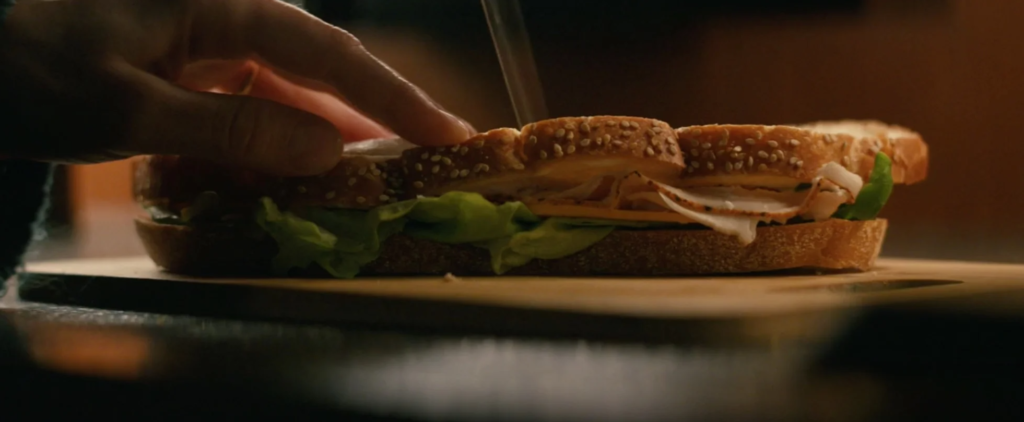
If we begin to look at loneliness the way we look at hunger, as something more than a tasty metaphor, it might help us understand how it affects our mood, our hormones, our brain—and ultimately, our perception of reality. In the words of Professor Hawkley, “You want to recognize that’s happening, that your brain is being hijacked essentially, and making you think things are perhaps not the way they really are.”
Which brings me to my next point.
Cognitive distortions
When we’re convinced the world’s against us, so will it be. Life’s not fair. But since we’re all trapped inside our own heads, it’s exceedingly easy to believe that it’s particularly unfair to us.
When I was first introduced to cognitive behavioral therapy, I read about cognitive distortions—irrational thinking patterns—and quickly realized that I checked many boxes.
Overcoming these distortions means learning to observe your own thoughts and biases. Essentially mindfulness. In my case, I was (and to some extent, still am) prone to mental filtering, where one negative event overshadows multiple positive ones. See, this always happens to me! I never get this right!
Loneliness accompanied by prolonged stress can create harmful self-fulfilling prophecies.
Say you just presented at a big meeting and received mostly excellent feedback. For some reason, you’re hung up on this one less-than-flattering comment. Now you’re thinking the presentation was a total disaster and no one, not even your grandma can convince you otherwise. Remember, there’s overwhelming evidence of your misperception (i.e., the majority loved your work), but you completely overlook that. You knew you’d blow it and now you have—in your own mind.
Some distortions have us dividing the world into “Us” and “Them”, glorifying the people and things that neatly affirm our worldview and demonizing those that oppose it. Life is easier to map out when you know who your enemies are. One way we do this is by looking at what they look like and what political parties they support. Of course, these are insufficient indicators of who people really are, but “othering” is also a defensive strategy to put yourself at ease.
It’s how societies become polarized, create division, and perpetuate groupthink.
Vengeance
There’s a reason why nearly every iconic villain has a lonely as fuck origin story. In the words of Mr. Glass: “To not know your place in this world, to not know why you’re here. That’s just an awful feeling.”
But if loneliness is so pervasive, shouldn’t we all be exacting revenge on high school bullies, corrupt politicians, predators, and greedy corporations?
Yet we tend not to. Because in spite of our rage, we somewhat understand that violence is a dish best served in a Tarantino film (or you know, savage punchlines at a comedy show).
It may seem trivial in the grand scheme of things, but the decisions we make under the weight of unprocessed pain are cosmically significant. They affect the very world we feel has abandoned us. They make us vengeful in a different way, in a wildly misplaced way that leaves its imprint on society and culture. It’s random, untargeted, chaotic. And it seems like it’s coming out of nowhere. Except it isn’t.

“People always clap for the wrong reasons.” ― J.D. Salinger, The Catcher in the Rye
And what do you think happens when lonely people with unprocessed pain rule our world and tell us what to do?
They make the world lonelier.
Think about it in the context of your own life. I’ll go first.
Once upon a time, I had a boss who was a total nightmare. She’d expect me to be at her beck and all day, work overtime for things that weren’t urgent, take on responsibilities that were totally outside my job description, nod along to every terrible decision—and explain myself whenever I’d have to excuse myself to go to the bathroom.
I quit my job not long after and landed a gig with a boss who made her look like the antichrist. After years of healing and much-needed distance from the situation, I couldn’t help but wonder how horrible it must have been to actually be her.
Now whenever I think about The Devil Wears Prada, it’s not the Dragon Lady that comes to mind. It’s that scene where the all-powerful Miranda Priestly is revealed barefaced and vulnerable, wounded by the barbed loneliness of her own existence. No wonder Meryl Streep felt horrible playing the role: “I was [miserable] in my trailer. I could hear them all rocking and laughing. I was so depressed! I said, Well, it’s the price you pay for being boss! That’s the last time I ever attempted a Method thing!”
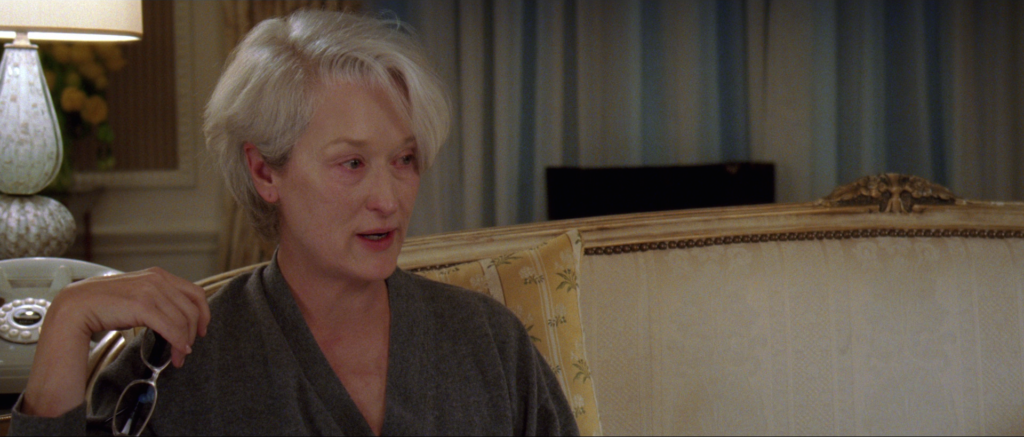
The alchemy of loneliness
“Among other things, you’ll find that you’re not the first person who was ever confused and frightened and even sickened by human behavior. You’re by no means alone on that score, you’ll be excited and stimulated to know. Many, many men have been just as troubled morally and spiritually as you are right now. Happily, some of them kept records of their troubles. You’ll learn from them—if you want to. Just as someday, if you have something to offer, someone will learn something from you. It’s a beautiful reciprocal arrangement. And it isn’t education. It’s history. It’s poetry.”
― J.D. Salinger, The Catcher in the Rye
I’ve spoken at length about the fury, absurdity, depravity, complexity, and fatigue of loneliness. But I don’t think loneliness itself is the problem. It never has been.
Society has a way of reducing loneliness to a type. We romanticize a certain kind of loner. The anti-hero, the rebel. The funny, mysterious, intelligent kind that’s easy to like and emulate.
But loneliness doesn’t have a face or a name. It’s not young or old. It doesn’t have a race or a gender—and it certainly doesn’t care if you’re rich or poor.
To me, the most surprising thing about loneliness is what it can potentially lead to, if you’re able to hold on. It’s the alchemy of it all.
Just go to the movies. Listen to an old record. Read a play. Learn about artists, writers, musicians, filmmakers before they got their big break. Loners, outsiders, castaways, rejects. All broken people with something to say, every last one of ’em. Despite our aversion to society, we hope someone will listen. We hope someone will care. Because once upon a time no one did—and we took it personally.
We immortalized our pain and sculpted scenes with Light and Shadow.
We summoned dead poets—and disturbed the universe.
👋 Hey, you ridiculously good-looking human! Thank you for reading.
I’d love to know your thoughts. What helped you overcome a lonely period in your life? What films, music, artwork, or events changed (or are beginning to change) your perspective? Let me know in the comments below!
🎬 Films, books, music, and TV shows referenced in this piece: FEEL. by Kendrick Lamar, The Catcher in the Rye by J.D. Salinger, Cast Away, Lars and The Real Girl, Live to 100: Secrets of the Blue Zones (Netflix), The Master by Paul Thomas Anderson, The 400 Blows by François Truffaut, Taxi Driver by Martin Scorsese, Joker by Tod Phillips, 21 Grams by Alejandro González Iñárritu, Awakenings by Penny Marshall, Synecdoche, New York by Charlie Kaufman, Severance created by Dan Erickson, Unbreakable by M. Night Shyamalan, The Devil Wears Prada by David Frankel. Enjoy!
💜 Thank you for supporting my content. If you like what your read, subscribe to my newsletter to get notified when my next post is up!

